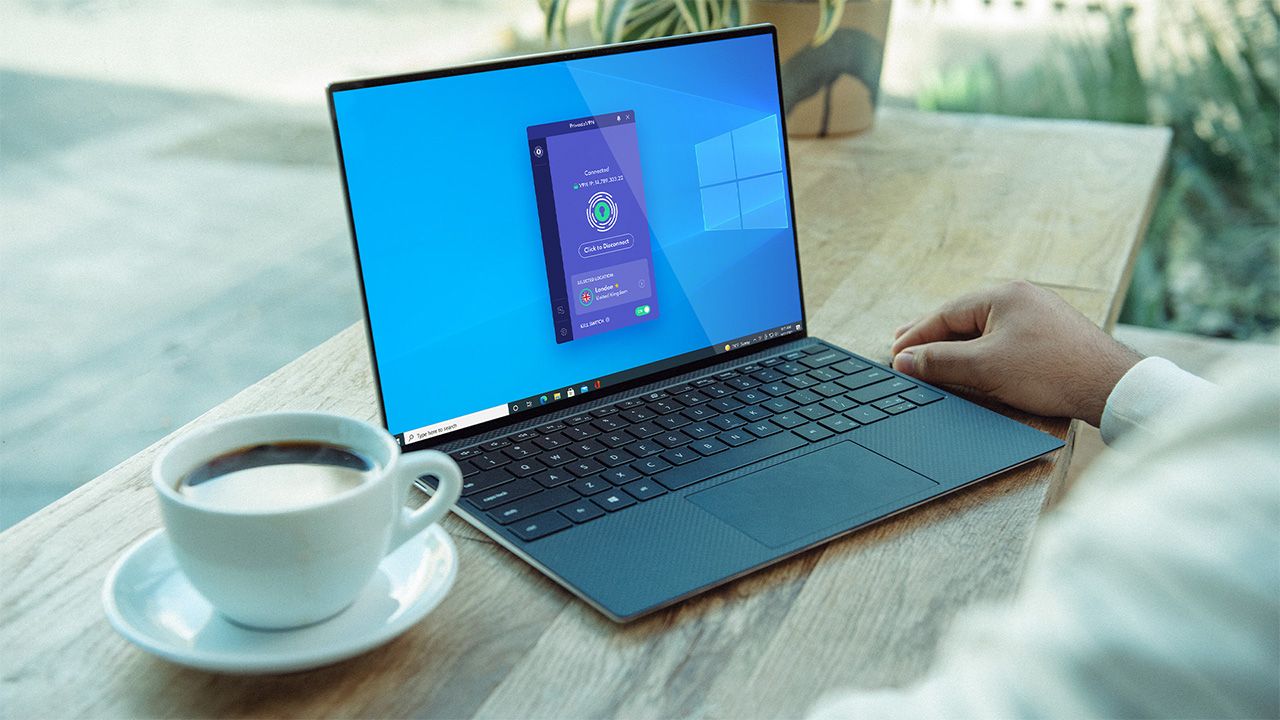Copyright tomsguide

VPNs have been thrust into the limelight in recent months. People have been turning to the best VPNs in attempts to bypass age verification laws, and we have seen unfair attacks on VPNs and end-to-end encryption. The Tom's Guide team tests and reviews VPNs all day, every day. NordVPN, ExpressVPN, and Proton VPN are some of our favorites. Many VPN providers require a somewhat expensive upfront payment for a one or two-year plan. Right now, the cheapest NordVPN plan costs around $80 up front, ExpressVPN around $97 up front, and Proton VPN around $86 up front. Even Surfshark, the provider we rate as the best cheap VPN, costs around $53 up front. But one VPN costs just $30 for two years, and has been quietly ramping up what it offers: PrivadoVPN. PrivadoVPN launched in 2019, and its Swiss base means it benefits from the country's strong data protection and privacy laws. However, proposed legislation in the country could change this, and PrivadoVPN is monitoring the situation. It's not quite as jam-packed as more premium VPN providers. However, it offers protection for 10 devices, decent speeds, and top-tier encryption, as well as some useful, lesser-seen features. This looks even better when you take PrivadoVPN's pricing into account. A 27-month plan costs $1.11 per month ($30 upfront). This is as cheap as a paid VPN gets. You can also add antivirus protection for $1.99 per month. So, if you're after a VPN but on a budget, PrivadoVPN could be a great choice, and represents a big step up from the best free VPNs. The basics done well You'd be forgiven for being a little cautious about PrivadoVPN's quality given its price – but from our testing, there's no need to be. It does the basics well and offers non-negotiable features including a kill switch, AES-256 encryption, and a no-logs policy. You can read our PrivadoVPN review for a full feature breakdown. It gas a kill switch on all platforms, which cuts your internet access should your VPN connection fail, protecting your data. It also offers an application-based kill switch for its Windows VPN. This allows you to block specific apps, as supposed to your entire internet connection. Although it has a no-logs policy, PrivadoVPN hasn't had it independently audited. We have no evidence to suggest the provider isn't keeping its word, but it's one of the biggest changes we'd like to see from PrivadoVPN and something we have communicated to their team. Independent audits can be criticized as simply being a snapshot in time, and not a true reflection of a VPN's no-logging claims. However, it is far better to complete an audit than not – regular audits are preferred. PrivadoVPN doesn't offer post-quantum encryption (PQE) support at this stage, but its AES-256 encryption is more than good enough for now. All VPNs should switch to PQE but some are making the switch at a slower pace than others – and the current risk posed by quantum computing is debatable. Unique features Beyond the basics, PrivadoVPN has a good range of tools, including some unique features. Have you ever used Maps when connected to a foreign VPN server? If so, your location will likely have shown you as being in your home country and not where your VPN is connected to. This is because map-based location is determined via GPS and not your IP address. PrivadoVPN's GeoJump overrides your GPS location with that of your VPN server. Both your physical and online location are masked, adding an extra layer of privacy to your activities. However this is only available on Android, and Surfshark and Windscribe also offer GPS location-spoofing. A wave of age-verification laws have swept across the US and UK, with people exploring whether VPNs can bypass age checks. Protecting children is the aim of these laws, but critics argue there are more effective ways of achieving this. Parental controls are one of those methods and most VPNs don't offer them. PrivadoVPN, along with ExpressVPN, Windscribe, and recently NordVPN, does. Up to 10 family profiles can be created and blocks on social media, adult content, gambling sites, and cryptocurrency can be created – plus more. There's a high degree of customization and you can also manually enter domains to allow and block. In my testing, I couldn't utilise these parental controls unless I was connected to the VPN. I can therefore assume they can be bypassed by disconnecting from the VPN. Control Tower allows PrivadoVPN users to control all protection features from one place – and it is now available in-app. You can oversee parental controls, threat protection, and DNS settings all from the Control Tower menu. As mentioned above, Control Tower appears only to work when connected to the VPN. If you have your VPN on all day, this isn't really a problem. But it's less flexible than other VPN threat protections – notably NordVPN – that stay on regardless of VPN connection. It's a $1.99 per month paid add-on but PrivadoVPN does offer a dedicated antivirus known as Privado Sentry. You can complete detailed, full, quick, and custom scans of your device which target potential risks. There's also real-time protection and advanced malware defence. A number of VPNs offer threat protection, but Surfshark and IPVanish are the only other major names to boast dedicated antivirus. Adding antivirus would take PrivadoVPN's monthly cost to $3.10 per month. Still reasonably priced, but this does soften PrivadoVPN's appeal somewhat. Surfshark includes antivirus with its Surfshark One plan, currently costing $2.19 per month. Scramble obfuscates your VPN traffic, allowing you to bypass internet censorship, and P2P file sharing is supported on all servers. There's a free option – PrivadoVPN Free – which is our number-one free VPN. There's a monthly data limit and support for one device only, but it does unblock streaming sites and is a reputable and safe free VPN option. However, I think the jump between the free and paid plans is worth the upgrade – unless you absolutely cannot afford it. The cheapest streaming VPN PrivadoVPN focuses heavily on streaming, so it's one to consider if you're after one of the best streaming VPNs. In our latest round of testing, PrivadoVPN unblocked almost everything we threw at it. This included Amazon Prime, Disney+, and Netflix in the US, and BBC iPlayer and ITVX in the UK. It performed well unblocking sites in Asia and Australia, with Canadian Netflix the only stumbling block we encountered – it couldn't unblock that at all. Its speeds clocked 500+ Mbps using WireGuard and a very impressive 800+ Mbps using OpenVPN. Although not one of the fastest VPNs available, these speeds are more than enough to stream in 4K – which requires 25 Mbps. PrivadoVPN isn't perfect. There are plenty of faster VPNs out there when looking at its WireGuard protocol speeds and its server count is rather small. It states it has 300 servers in 50 countries and 67 locations. This covers most major locations but if you're looking for somewhere specific, you may be better off with Proton VPN or NordVPN – with servers in 126 and 127 countries respectively. We haven't yet tested the antivirus but PrivadoVPN's threat protection performed quite poorly in our testing – it's worth noting that antivirus and threat protection are different. Of 50 new phishing links, PrivadoVPN only blocked 26%. Surfshark blocked 34% but ExpressVPN, Proton VPN, and NordVPN all blocked 76% and above. Subjecting PrivadoVPN to 50 of the latest malware-hosting links, it blocked 6%. Surfshark blocked 16%, while ExpressVPN and Proton VPN blocked 0%. NordVPN's Threat Protection Pro performed the best in both tests, blocking 90% of phishing links and 52% of malware links. PrivadoVPN performed poorly but you shouldn't rely on VPN threat protection alone. It's a handy extra, but if you really care, you should purchase dedicated threat protection and antivirus software. Although not overly difficult to use, PrivadoVPN's app can't be described as intuitive. I found the iOS app the nicest to use but its desktop apps are a little clunky. In testing, we experienced a few connection issues on desktop, feedback we have provided to the PrivadoVPN team. The apps won't blow you away. But for $30, what do you expect? When undertaking some in-depth tests, I did experience some trouble on a older Windows machine. After downloading, I couldn't load any web pages or connect to any VPN – not just PrivadoVPN. This was remedied by uninstalling the app. Of course, due to my job, I have numerous VPNs installed concurrently, and I've experienced them interfering with each other in the past. However, on all other devices I've used PrivadoVPN on, I've had absolutely no issues. The good news is that this is what money-back guarantees are made for – if you sign up and it doesn't work, you can claim your money back. With my Apple devices, PrivadoVPN worked absolutely fine. Although a little basic, I had no issues using its iPhone VPN and Mac VPN apps. Finally, as mentioned above, we'd like to see an independent no-logs audit commissioned by PrivadoVPN. For the price, I think PrivadoVPN is hard to match. It's as cheap as you're going to get when it comes to paid VPNs. It's secure, pretty fast, and has some decent features. It has its quirks, but the PrivadoVPN team have made some welcomed improvements in 2025, and hopefully there's more to come. The $30 upfront price can't be ignored. If you want to upgrade from a free VPN or spend as little as possible on a paid VPN, PrivadoVPN is worth a look.



